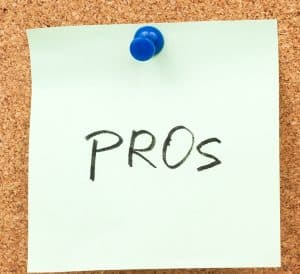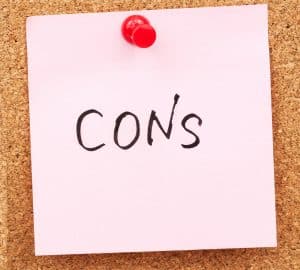
Pros and Cons of Taking Out a Mortgage for a Home in an HOA Community
As with most things in life, there are plenty of advantages and disadvantages to living in a community governed by a homeowners association (commonly abbreviated as HOA). Aside from lifestyle considerations, financial considerations are also important. Living in an association typically requires the payment of membership dues on a monthly or annual basis. Certain types of housing, such as condominiums, are almost always governed by an association while single-family homes are only part of an association some of the time.
It is critically important for you to know whether a piece of property you are considering purchasing is within an HOA. This is because there are additional rules and financial commitments you will be responsible for once the property is bought. These details will also be important to your lender. The following are some of the key pros and cons of taking out a mortgage for a home in a managed community.

Pros
The Lender Knows You Are Required To Maintain The Property
A lender may be more forgiving about their lending requirements for a property in an association because they know you will have to properly maintain it. Because there is another party overseeing the maintenance and upkeep of your home, your lender knows you will be held to a certain set of standards. This, in turn, gives them a certain level of reassurance over an asset they have a stake in.
Your Home’s Value Will Be Protected
Because there are rules in place for maintaining properties within an association and penalties if you don’t, the value of your home will have a certain level of protection. This makes it far less likely that your home will lose value because of factors beyond your control, such as how your neighbors maintain their homes.
Regular Maintenance And Amenities May Be Paid For You
Some homeowners associations pay for services such as snow removal and most all pay for landscaping of common areas. Some associations even cover maintenance on your home. Others provide nice amenities that would otherwise be much more expensive to have, such as a pool or recreational facilities. This allows you to save money.

Cons
The Community May Have Financial Problems
Your lender will want to see financial information about the association, such as reserves and budgets. This is because, as a party that has an interest in the home, they want to evaluate all factors that could affect both the borrower and the property. An association that is not financially well-off may be an obstacle to being approved for a mortgage.
More Red Tape
When a property is in an HOA, there is more red tape to go through when applying for a mortgage. In addition to all of the regular items, you will need when buying a home, you will also need to contact the association or their management company to gain copies of financial information, upcoming or recently-completed major projects, the association’s governing rules and more. The association will essentially be another party involved in the sale, which, under some circumstances, could add additional closing time.
The Mortgage Cost Will Be In Addition To Dues
As mentioned previously, homeowners associations charge regular dues to property owners in their community. This means that in addition to the cost of your mortgage, you will be responsible for the association dues as well. Failing to pay your dues for prolonged periods of time may even result in foreclosure.
Living in a homeowners association can be a wonderful decision for many people, but it is not right for everyone. If you are planning to buy a property in an association, understand the full scope of that decision as well as the details regarding that specific association. By doing your due diligence, you will find a housing arrangement that is everything you hoped for.

